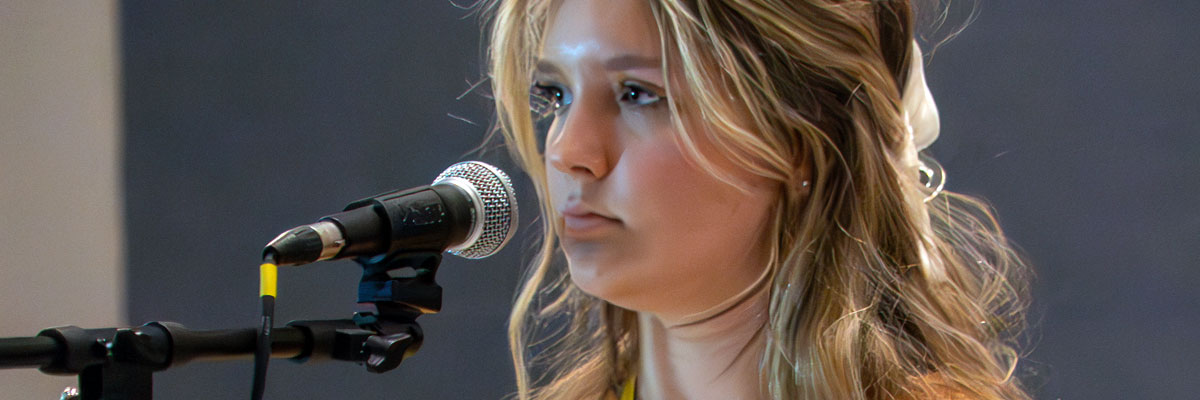Official Website of the
Catholic Diocese of Little Rock
Fifth Sunday of Lent, Year C
Published: March 13, 2016
Bishop Anthony B. Taylor preached the following homily at St. John Church in Hot Springs on Saturday, March 12, 2016, and during the closing Mass for the St. Andrew School of Evangelization First Catholic Congress at the Conway Expo Center on Sunday, March 13, 2016.

Bishop Taylor
I'm sure you've heard the saying: "Let your conscience be your guide." The conscience is that internal voice that urges us to do what is right and shames us when we do wrong. And we are convinced that if we follow that voice, it will lead us the way we ought to go.
But that is not necessarily true. We can make poor choices in good conscience. Just like a clock, our conscience can sometimes get off and begin to feed us unreliable information. So each of us should give our conscience a regular check-up and when necessary, make corrections.
Today's Gospel speaks of some men whose consciences need some serious adjustments. They said they wanted Jesus' opinion on how to deal with a woman caught in adultery. But their real purpose is to ensnare Jesus in controversy. So though they may have been acting in good conscience, they were not acting in good faith.
What our world needs is more people who are not only conscientious, but also wise, compassionate, understanding and kind. Lent is a time for us to give our conscience a checkup.
How about us? Lent is a time to give our consciences a checkup — especially considering all of the hot button issues out there in the public square. To be sure that we are not making poor choices, even if in presumably good conscience.
First — Is your conscience and mine on the right side of the real issues? Often when there is a conflict, people on both sides are convinced of the rightness of their position and can even make what seems to them a good case for their position. We could make a long list: pro-life or pro-choice, immigration reform or build a wall, but since Pope Francis has called for a ban on the death penalty and this is a current issue in
One side can argue passionately that if you take a life you deserve to lose your life and they can even quote Bible verses to that effect. The Catholic Church teaches, however, that the death penalty is moral only in cases where the public cannot be protected from future harm any other way. Since we have secure prisons, the use of the death penalty in our society is immoral. So how can we know which approach is right? That of many Americans or that of the Catholic Church?
Applying the golden rule is a first step in helping us decide the rightness or wrongness of an issue. Remember when Pope Francis referred to this when addressing Congress regarding immigration? "Do unto others as you would have them do unto you." So put yourself in the other's place. Many inmates find religion in prison and it is certainly true that they change over time — to the point that the man we execute is different from the man who committed the crime.
Another thing that can help us decide the rightness or wrongness of an issue is to ask, "Do you think the man who saved the life of a woman about to be executed for adultery would give a lethal injection to a man on death row?" These two tests will help us to adjust our conscience to the point that we begin to see the bigger picture: the golden rule and "what would Jesus do."
Second — Are we keeping our conscience warm and friendly? And are we courteous and civil in dealing with people, including those with whom we disagree? Jesus was strong, but he was also warm and kind. He cared about the law, but he cared about people more. He knew that the law was made for man, not man for the law. So while he certainly did not approve of adultery, he sought to redeem rather than to condemn. His heart went out to the woman standing before him in utter humiliation. His first response was to confound and disperse her accusers. Having done that, he turned to the woman and sent her away with these words ringing in her ears: "Nor do I condemn you. You may go. But from now on, avoid this sin."
What our world needs is more people who are not only conscientious, but also wise, compassionate, understanding and kind. Lent is a time for us to give our conscience a checkup. Are we on the right side of issues, following the golden rule, trying to do what Jesus would do? Are we concerned with matters that really matter, and are we doing so in a way that is merciful and kind? If not, let's use the rest of this Lent to make the needed corrections.









